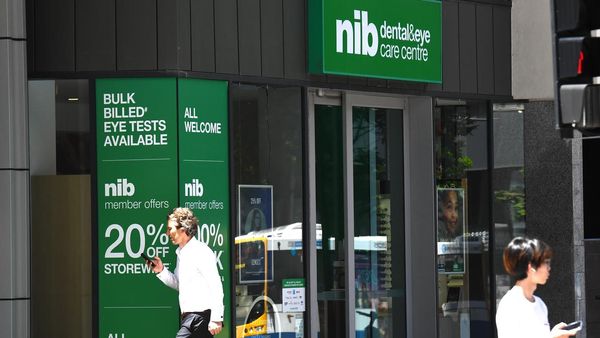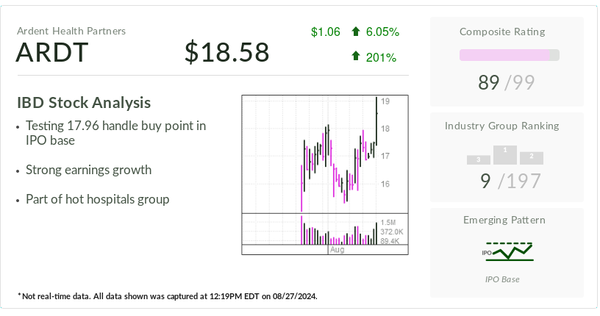
Extreme pressure on the public healthcare system is driving people towards private health in droves, which Hunter-based health insurer nib is behind its "strong profit growth" in the past 12 months
The company saw its post-tax profit jump by 67.4 per cent to $181.6 million and the total group revenue increased to $3.3 billion, up more than 9 per cent on the previous financial year.
Nib's annual report revealed its membership increased by 18,000 people, or 2.5 per cent, to almost 715,000 policyholders.
Nib chief executive Mark Fitzgibbon said the trend was being fueled by long wait times in the public healthcare sector, which is under increasing pressure.
"It underscores a very serious inconvenient truth; that the public health system is struggling to cope," he said.
"We have an aging society and limited tax dollars. As a society we need to come to grips with the reality that the public medical system can't pay for everybody, and we are going to have reserve funding for those otherwise left behind.
"That means even more people will have to be covered by private health insurance. We don't celebrate that, but we can help relieve those pressures."
Mr Fitzgibbon said nib was adjusting its strategy to become as much a health management company as it was a private health by expanding its range of services.
Although the COVID-19 pandemic was in the past, "its consequences continue to play out".
"People are today more aware of risks to their health and the need for protection," Mr Fitzgibbon said.
"Extreme pressures on the public healthcare system makes private health insurance all the more attractive to consumers."
Nib's policyholder growth of 2.5 per cent is expected to outperform the industry average, and "has been achieved during a period of sustained household cost of living pressures, intense market competition, and after two back-to-back premium increases".
In March, nib announced an increase to its health insurance premiums by an average of 4.10 per cent, and in response revenue from premium increased 8.5 per cent to $2.6 billion.
Mr Fitzgibbon said although a number of macro-economic and cost of living factors suggest a level of caution, the outlook across the group, on balance, remained optimistic.
"The number of people who have taken out PHI has increased every quarter, for the past 15 quarters, we shouldn't lose sight of that," Mr Fitzgibbon said.
"We're also seeing the return of migrants, including international students and workers, and are confident travel sales and profitability will improve in to FY25."
The number of claims is increasing from an "artificially low" COVID-19 base, which coupled with hospital costs pressures, is placing pressure on premiums and underwriting margins.
Nib recently resolved an ongoing contract dispute with St Vincent's Health, after the private hospital group threatened to walk away from the negotiations, claiming the health insurer's offer didn't come close to covering the cost of providing services.
"Demands from hospitals across Australia and New Zealand for price increases to repair their finances and meet growing labour costs [are increasing costs]," Mr Fitzgibbon said. "Both factors [price increases and labour costs] are inflationary and will need to be carefully managed to keep premiums affordable."
But the ASX-listed company isn't concerned about inflation, which Mr Fitzgibbon said was "manageable" and would normalise in the medium term.
The insurer's travel, international students and workers, National Disability Insurance Scheme and New Zealand operations together contributed about a quarter of its underlying operating profit.
Mr Fitzgibbon recently announced he will retire at the end of the year, after steering the company for more than two decades.
He will be replaced by Ed Close, who is currently the company's Australian Residents Health Insurance group executive.
The company declared a second half dividend of 14 cents per share fully franked, taking the full year payout to 29 cents per share.










